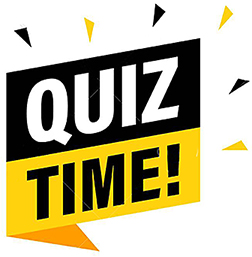
Verb Tenses
PRESENT PERFECT SIMPLE
The present perfect is used to indicate the link between the present and the past. The time of the action is not specified and we are more interested in the result of the action rather than the action itself.
OMG, I‘ve broken the vase. (focus on the present result)
I‘ve seen this movie a few times. (focus on experience)
If we say when something happened or when somebody did something, we use the past simple:
Yesterday I broke a vase. This morning I smashed a statue. (focus on the time)
Last night I watched a movie and later listened to music. (focus on the time)
We often use with present perfect the following adverbs and adverbial phrases:
Key Words
ever, never, already, yet, since, for, just, recently, before, so far, this week/summer, Since when?
Forms of Present Perfect
Affirmative
I have gone.
You have gone.
He/she/has gone
We have gone.
They have gone.
Negative
I have not gone.
You have not gone.
He/she/it has not gone.
We have not gone.
They have not gone.
Question
Have I gone?
Have you gone?
Has he/she/it gone?
Have we gone?
Have they gone?
USE OF PRESENT PERFECT
1
to talk about action/state that started in the past and continues in the present
Everybody knows her. She has worked here since October 1998.
They have been married for more than 20 years.
I haven’t seen you since we finished high school.
Of course, I believe you; I have known you for ages.

2
to talk about unfinished period of time
There has been a lot of rain this summer.
I haven’t seen Lauren today. Maybe she works the afternoon shift.
She hasn’t drunk anything this week. That’s strange.
This has been far the best the audition this evening.

3
to talk about repeated action between the past and now
You have called her ten times? C’mon.
I have seen ‘Forrest Gump’ three times and still find it interesting.
We have eaten at ‘Miami Night’ many times. It’s such a great place
4
when the time of action is not important/specified or not known
The storm has damaged many houses in the neighborhood.
She has done a lot of exercises recently and her figure has changed significantly.
5
when the time of action is not important/specified or not known
The storm has damaged many houses in the neighborhood.
She has done a lot of exercises recently and her figure has changed significantly.
6
to talk about uncompleted actions you are expecting to happen
Bill has still not arrived. He can be here at any time.
I still haven’t mastered Spanish, but I can somehow make myself understood.
The rain hasn’t stopped. I wish it were sunny.
Darling, have you finished the dressing up yet?
I still haven’t found what I’m looking for.
7
to talk about changes over certain period
Ooh little John, let me see you; you have grown a lot since I saw you last, haven’t you?
Since 9/11 the government has changed its immigration policy.
Sochi has become a frequently visited tourist destination since the winter Olympic games.
Keep away from her. She has turned into a energy vampire recently.
DIFFERENCES BETWEEN THE PAST SIMPLE AND PRESENT PERFECT
She has worked for CNN for 15 years. (she still works there)
She worked for CNN for 15 years. (now she is at FOX NEWS)
Have you had lunch yet?
Did you have lunch in a restaurant or at home?
How long have you had this car? Is it reliable?
How long did you have your car? (before you sold it)
Has John already left? Oh, I should have talked to him.
A: When did John leave? B: 20 minutes ago.
Since when have you been here?
When did you arrive?

Take the QUICK TEST. Fill in the gaps with the preset perfect or the past simple forms of the verbs in brackets. Once you finish the test, the correct answers will be displayed.

Time’s up
brightonschool.info
© Copyright 2023
® All rights reserved
GRAMMAR
Tenses
Passive
Conditionals
Adjectives
Adverbs
Prepositions
VOCABULARY
Collocations
Word Bank
Phrases
Idioms
Syllable Stress
Common Mistakes
TEST YOUR ENGLISH
Take a Level Test
Test Bank
INFO
About Us
Get in Touch
Disclaimer